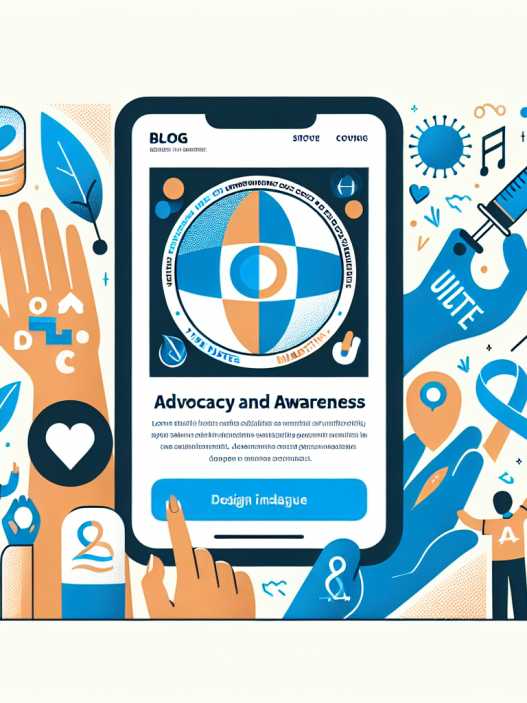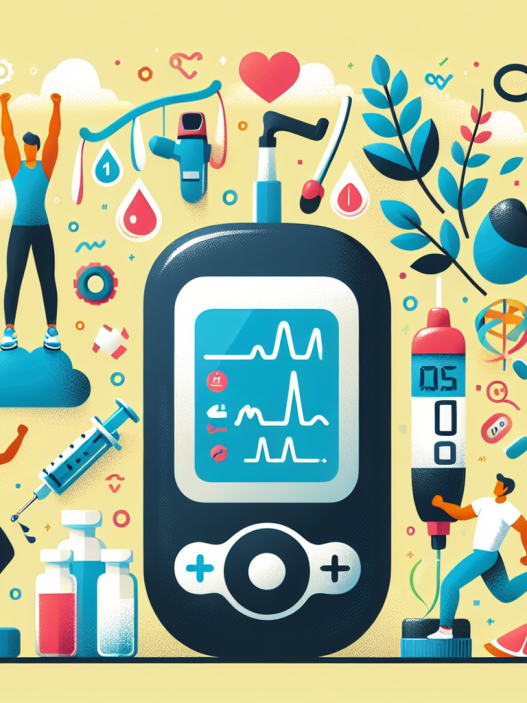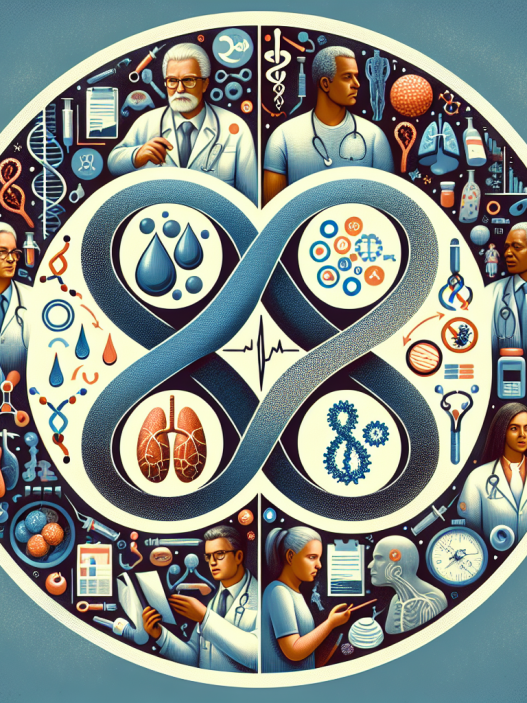[ad_1]
Living with Type 1 Diabetes (T1D) extends beyond managing blood sugar levels; it profoundly affects mental health and emotional well-being. The relentless demands of daily monitoring, insulin management, and lifestyle modifications can create a tremendous emotional burden. In this blog, we will explore the intersection of Type 1 Diabetes and mental health, examining the psychological challenges faced by individuals, and provide effective strategies for coping. By understanding these challenges and implementing coping mechanisms, we can foster emotional resilience and improve overall quality of life.
The Psychological Toll of Type 1 Diabetes
The diagnosis of Type 1 Diabetes can shock and overwhelm individuals, typically during childhood or adolescence. This life-altering condition demands constant vigilance, leading many to experience a myriad of emotional challenges. Mental health issues, such as anxiety and depression, are prevalent among those living with T1D. The persistent fear of hypoglycemia or the long-term consequences associated with poorly managed blood glucose levels can create an atmosphere of chronic stress. This stress is compounded by the difficulties of navigating social situations, school, or work while managing diabetes, creating feelings of isolation and frustration.
Furthermore, the need for continuous self-monitoring of blood sugar levels can lead to diabetes burnout, a state of emotional fatigue characterized by apathy towards diabetes management. This fatigue might manifest as neglecting insulin injections, ignoring dietary guidelines, or refraining from regular blood sugar checks. The management of T1D becomes not just a physical challenge but a mental one, significantly affecting overall well-being. This emotional struggle is often invisible to others, leading to social stigma and feelings of inadequacy or embarrassment, reinforcing the need for supportive strategies and interventions.
Understanding the Link Between Chronic Illness and Mental Health
The correlation between chronic illnesses like Type 1 Diabetes and mental health complications is well-established in medical literature. Chronic conditions can lead to increased rates of psychiatric disorders due to the stress and lifestyle adjustments required for effective management. Research indicates that individuals with diabetes are at a higher risk of experiencing anxiety disorders, mood disorders, and even eating disorders compared to their non-diabetic peers. The daily grind of managing T1D can contribute to a diminished quality of life, and these mental health issues may discourage effective diabetes management.
Moreover, the cyclical relationship between diabetes management and mental health cannot be overstated. Poor mental health often leads to poorer diabetes management outcomes, such as fluctuating blood glucose levels and increased risk of diabetes-related complications. Conversely, when individuals scramble to keep their blood sugar levels within a normal range, the associated stress can exacerbate mental health issues. This downward spiral highlights the importance of addressing mental health proactively, not only to improve emotional wellness but to support better management of Type 1 Diabetes.
In order to combat this troubling cycle, it is essential to cultivate an awareness of how mental health issues manifest in those with T1D. Recognizing symptoms, such as difficulty concentrating, irritability, or changes in mood, can help individuals and healthcare providers develop proactive interventions. This awareness helps in the formulation of a comprehensive management plan that includes psychological care as an integral part of diabetes treatment.
Recognizing Warning Signs of Mental Health Struggles
Awareness is key when managing Type 1 Diabetes alongside mental health challenges. Symptoms of anxiety, depression, or burnout can often go unrecognized or dismissed as mere fatigue from diabetes management. It’s essential for individuals, families, and caregivers to be aware of potential warning signs that indicate a need for professional support. Changes in appetite, disrupted sleeping patterns, withdrawal from social activities, or feelings of helplessness can all indicate the onset of mental health struggles.
Additionally, recurrent episodes of high or low blood sugar can both predict and exacerbate emotional distress, as they can influence mood and overall well-being. Individuals may also experience a heightened sensitivity to the pressures of managing diabetes, leading to feelings of being overwhelmed. Professional interventions, such as therapy or counseling, can provide much-needed support while promoting healthy coping strategies.
Self-monitoring emotional states alongside physical health can illuminate underlying mental health struggles. Keeping a journal to document feelings, cravings, and emotional responses to diabetes management may reveal patterns. By acknowledging both highs and lows, individuals can better communicate their mental health needs with caregivers or healthcare providers. This proactive approach encourages open dialogue and allows for tailored interventions that address both the physical and emotional aspects of living with Type 1 Diabetes.
Effective Coping Strategies for Mental Health Care
One of the most effective ways to address the mental health impact of Type 1 Diabetes is through the implementation of coping strategies that promote emotional well-being. Mindfulness practices, such as meditation and deep-breathing exercises, can reduce anxiety levels and foster a greater sense of control over both mental and physical health. Research shows that mindfulness helps individuals focus on the present, alleviating worries about future complications or daily glucose management.
Establishing a strong support network is equally vital. Connecting with friends, family, or diabetes support groups can help mitigate feelings of isolation. Sharing experiences with others who understand the struggles can provide feelings of validation and empowerment. Support groups often foster an environment where individuals can express concerns, share effective management techniques, and celebrate successes together, thereby easing the emotional burden associated with T1D.
Additionally, cognitive-behavioral therapy (CBT) can be an effective intervention for individuals experiencing mental health issues related to Type 1 Diabetes. Through CBT, patients learn to identify and challenge negative thought patterns and behaviors, ultimately fostering healthier coping mechanisms. This therapeutic approach not only addresses emotional challenges but also equips individuals with tools to improve their overall diabetes management skills.
The Role of Nutrition and Exercise in Mental Health
The interconnectedness of nutrition, exercise, and mental health cannot be overlooked when discussing coping strategies for Type 1 Diabetes. A well-balanced diet is not only critical for physical health but also plays a vital role in emotional well-being. Consuming nutrient-rich foods can positively impact mood and cognitive function. For instance, incorporating omega-3 fatty acids found in fish, nuts, and seeds can have anti-inflammatory effects and support brain health.
Engaging in regular physical activity has also been shown to exert a positive influence on mental health. Exercise releases endorphins, the body’s natural mood lifters, which can relieve stress and promote feelings of positivity, energy, and vitality. Activities such as walking, dancing, or yoga can be enjoyable and beneficial, fostering a sense of accomplishment that counteracts feelings of inadequacy or burnout that often accompany chronic illness management.
Moreover, nutrition and exercise can work in tandem to support blood sugar stability, which in itself can reduce mood swings and enhance overall mental resilience. Keeping a consistent schedule for meals and physical activity can help stabilize blood glucose levels, thereby alleviating some cycles of anxiety associated with fluctuating blood sugar.
Building Emotional Resilience Through Self-Compassion
Practicing self-compassion is a fundamental skill for managing the emotional challenges that accompany Type 1 Diabetes. Learning to treat yourself with kindness during moments of struggle can create a buffer against critical self-talk and feelings of guilt associated with diabetes management. Embracing the idea that it is okay to have difficult emotions helps cultivate resilience and enables individuals to better navigate challenges.
Engaging in positive affirmations and self-reflection allows individuals to celebrate the small victories of managing diabetes. Recognizing and appreciating progress—no matter how small—can foster a positive mindset, shifting the focus away from perfectionism toward self-acceptance. By reframing thoughts during tough times, individuals can foster a more balanced perspective on living with Type 1 Diabetes.
Ultimately, emotional resilience comes from understanding that self-care is not merely about managing physical health, but also about investing in emotional wellness. Prioritizing mental health can lead to improved diabetes management, effectively closing the gap between physical and emotional care. Furthermore, adaptive coping strategies can enhance one’s quality of life and reinforce the belief that thriving with Type 1 Diabetes is achievable.
Conclusion
While Type 1 Diabetes presents unique challenges that can significantly impact mental health, understanding these challenges lays the groundwork for effective coping strategies. By recognizing the interconnectedness of physical and mental health, individuals can take proactive steps toward emotional resilience. Incorporating mindfulness, nurturing support systems, maintaining a balanced lifestyle, and practicing self-compassion creates a holistic approach toward living well with T1D. Always remember that seeking professional help is a vital component of this journey, and addressing mental health encompasses a critical aspect of comprehensive diabetes management.
Embracing these strategies offers hope and empowerment to individuals living with Type 1 Diabetes, motivating them to lead fulfilling and vibrant lives despite the hurdles faced. Together, we can foster a compassionate dialogue around diabetes and mental health, clearing the path to a brighter future for all those affected.
[ad_2]




















